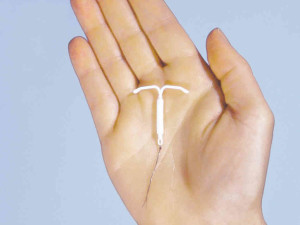Mirena IUD Linked to Blurry Vision in New Lawsuit

On September 4, 2018, a new product liability lawsuit was filed against Bayer Healthcare by a plaintiff who claims the medical implant Mirena left her with blurry vision and severe headaches. Nichole Thomas, a woman from Tennessee, filed the complaint in the U.S. District Court for the Southern District of New York. This lawsuit is expected to be consolidated with hundreds of other lawsuits filed against Bayer with respect to the Mirena intrauterine device (IUD).
About the Mirena IUD
The Mirena IUD is a long-term birth control method. It consists of a small, flexible, T-shaped piece of plastic that a doctor inserts into the uterus. Mirena is capable of preventing unintended pregnancies for up to five years. It works by gradually releasing the hormone progestin.
Since Mirena was approved by the FDA in 2000, thousands of lawsuits have been filed against Bayer. They allege that the device caused severe and debilitating complications, including pain, bleeding, and perforation of the uterus. Many of the Mirena IUD lawsuits also allege that the plaintiff suffered from pseudotumor cerebri (PTC), also known as intracranial hypertension (ITC).
About pseudotumor cerebri
PTC is the complication that Thomas alleges she suffered from as a result of being implanted with the Mirena IUD. PTC develops as cerebrospinal fluid accumulates in the brain. The fluid accumulation results in an increase of pressure on the brain, which can lead to symptoms that are similar to those caused by brain tumors.
As pressure in the brain increases, so too does the pressure exerted on the optic nerve. The optic nerve swells, resulting in the loss of vision. Severe headaches that worsen with eye movement, ringing in the ears, blurry or dimmed vision, double vision, seeing flashes of light, difficulty with peripheral vision, and brief episodes of blindness are other possible symptoms.
In the case of Nichole Thomas, a diagnostic lumbar puncture was required to make the diagnosis. A lumbar puncture is the same procedure as a spinal tap. In some cases, surgery is necessary to resolve the condition.
Allegations against Mirena
The Mirena product label indicates that the product should be used with caution in patients who have a prior history of migraine, focal migraine with asymmetrical visual loss, or other symptoms indicating transient cerebral ischemia. However, the complaint filed by Thomas alleges that Mirena never issued adequate warnings regarding the potential risk of pseudotumor cerebri. Other lawsuits filed against Bayer similarly state that the medical device company failed to issue adequate warnings to patients and doctors about the potential for serious complications.
Thomas first received the Mirena IUD in the summer of 2016. At an unspecified point in time thereafter, Thomas began experiencing the symptoms of PTC. She was diagnosed with the complication in June of 2017. Her lawsuit, along with others pending in the Mirena multidistrict litigation (MDL), is proceeding before U.S. District Judge Paul A. Englemayer.
In an MDL, the cases first go through the process of discovery. Later, the judge schedules a handful of bellwether trials, or initial trials intended to assess how juries typically respond to various evidence and testimony. It’s generally expected that settlements will follow, although any cases not settled will be remanded back to their home districts for an individual trial.
Additional resources:
- Mayo Clinic, Mirena (Hormonal IUD), https://www.mayoclinic.org/tests-procedures/mirena/about/pac-20391354
- Mayo Clinic, Pseudotumor Cerebri, https://www.mayoclinic.org/diseases-conditions/pseudotumor-cerebri/symptoms-causes/syc-20354031


